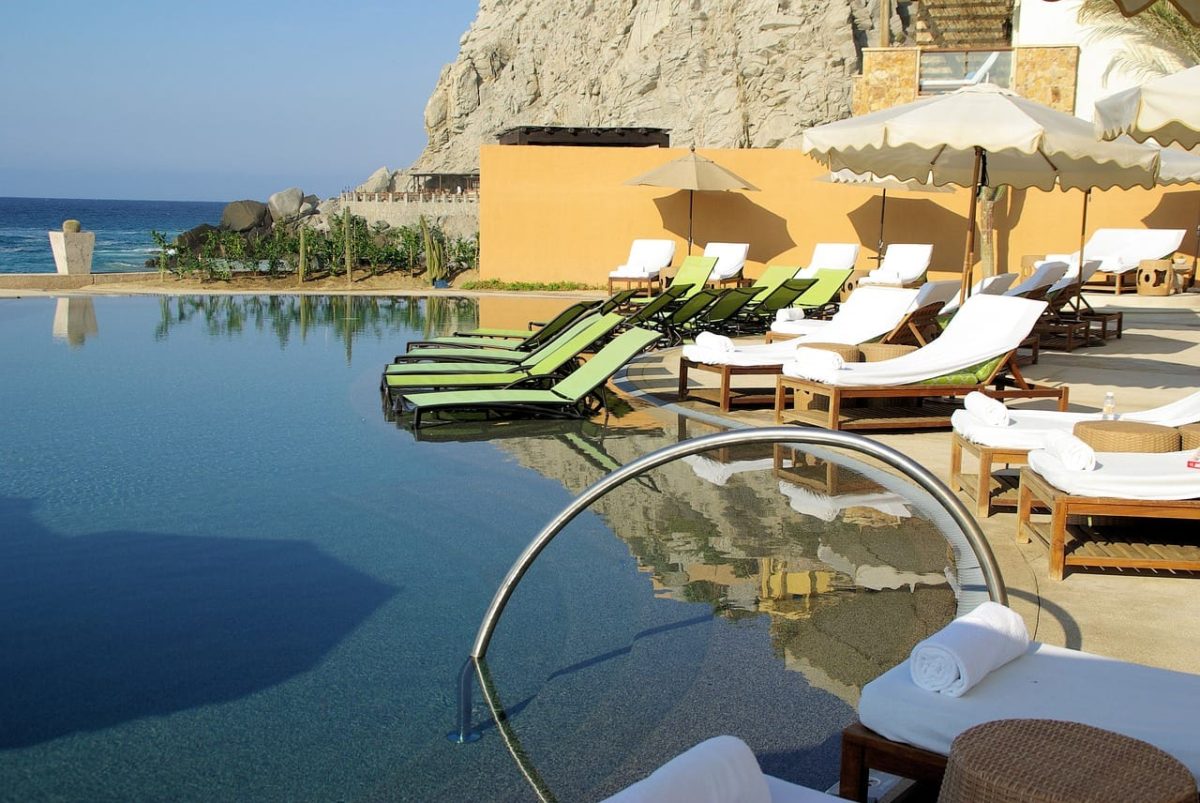An electric pool heater is great for extending your swimming season. You’ve invested lots of money in your pool and you want to get maximum use from it but it’s too cold to swim all year round. Maybe in spring and fall you can only swim during the day but you would like to swim at night when you come home from work. If you have an indoor pool it’s still way too cold to swim in the winter and during the day the water gets no sun to warm it up.
Electric pool heaters are the answer to extending the use of your swimming pool. Imagine being able to start swimming one month earlier and keep swimming one month later each year. And those cool spring or fall nights are no longer a problem.
Table of Contents
How does a Pool Heater Work?
Here’s how your filtration system works.
Your pump sucks water from the pool’s skimmer box through a pump waste basket to catch any large contaminants missed by the skimmer basket. The water pumps through the filter to clean the water.
If you have a saltwater pool, the water passes through a salt water chlorinator that generates and releases free chlorine into the water.
The water flows back to the pool’s jet outlets.
The typical swimming pool heater is an electric unit that is connected to the plumbing outflow from your filter or before the salt water chlorinator (if you have one). When the water has been filtered it passes through the heater unit before returning to the pool.
As you can see the pool water is already being pumped around and through the filter and chlorinator so why not pump it through a water heater as well. All that is required is a simple plumbing alteration and plugging the heater into a power source.
Please read our post on Pool Thermometers
Electric Pool Heaters
Electric pool heaters are a unit that uses electricity to heat up a heating element or heating coils (similar to an electric kettle). Water passes by the heating element or through heating coils to warm the water. Unlike an electric kettle the pool heater is not going to boil the water but only warm it up a little. We don’t want to cook anyone in the pool!
Electric Pool Heat Pumps
Heat pumps work on a different heating principle by compressing and decompressing a refrigerant to exchange cold with heat. When the liquid refrigerant expands or decompresses into a gas it absorbs the surrounding heat.
The heat pump compresses the gas back into a liquid to release heat.
This is similar to a refrigerator or air conditioner but in reverse.
These days most air conditioners are reverse cycle which means they can be used for cooling or heating. A fridge or air conditioner exchanges the warm air inside the fridge or room with cooler air.
A pool heat pump exchanges the cool pool water with hot water.
Pool Heater vs Pool Heat Pump
Now you’re thinking what should I buy? An electric pool heater or a heat pump.
Usually electric heaters are used for spa pools and hot tubs because there is far less water to heat and the electricity usage is minimal. Also pool heaters work well in all temperatures even when it’s very cold. So if you like having a spa in the middle of winter a water heater is what you need.
The advantage of pool heat pumps over pool heaters is that they are more energy efficient and use less electricity to heat your pool. This is great news for the environment, however, heat pumps are more expensive than pool heaters. The other drawback for heat pumps is that they don’t operate in cold weather because they cannot exchange surrounding heat with your pool water as there is no surrounding heat. Usually heat pumps need to operate in at least 50F to 60F and above.
If you have solar electricity the water heater may be the better option because your electricity is very inexpensive and the heaters are the cheapest option.
The choice between heater and heat pump technology is also going to be based on total pool usage. If you don’t use the pool during the week don’t heat the water. Only heat the water in the pump cycle before you plan to use the pool. Remember that most pumps will take 6 hours or more to turn over the entire contents of the pool so if you want to swim in warm water make sure the pump has been on for 6 hours before diving in or you will be in for a cold surprise.
Conclusion
Pool water heaters are a great addition to your backyard pool. You can extend your swimming season and feel comfortable swimming early morning or after the sun has set. If you have an indoor pool or an outdoor pool that gets little sun a water heater is really a necessity. Your family will love it.


